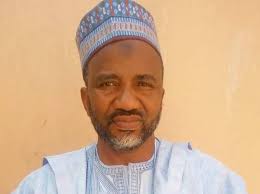Th e recent visit by Governor Badaru Abubakar to Jigawa hospitals proved to him all is not well in the state, especially the health sector. During the visit, he saw broken equipment, poor state of facilities like generators, toilets, leaking roofs, ambulances, lack of drugs, manpower shortage, limited beds for patients, among others.
Th is incident confi rmed the 2017 National Immunization (Routines) statistics which placed Jigawa second to the last among Nigeria’s 36 states. Also, in the 2017 WAEC report, Jigawa came second to the last among the 36 states of the federation. So, what is really happening? What are the problems that led Jigawa to experience these ignominious positions? I have been thinking what Jigawa government under the watchdog of Alhaji Muhammadu Abubakar Talamis is heading to because of neglect and lack of maintenance culture in the state. Before the Lamido administration in 2007, the health budget of the state was never above 5%.
From 2007 there was gradual increase in the budget reaching 15% in 2013, making the state only one in the nation to attain Abuja declaration. Lamido introduced a decentralized and integrated district health system, Gunduma Health System, because he espoused the World Health Organisation’s scheme to improve access to healthcare and reach out to the rural dwellers within available resources.
Lamido’s vision for Gunduma Health System was to have a healthy and productive population and promote the health status of the people of Jigawa state through improved integrated health care service, awareness on health and health related matters; to ensure good resource mobilization and practices with increased public-private partnership and eff ective participation and ownership to ensure that basic health services are made available, accessible, aff ordable and acceptable to the people.
The gains included: revamping the infrastructure, improving health care fi nancing, strengthening human resource for health, improving health service delivery, sustaining drugs supply and equipment provision and promoting community participation and ownership of Jigawa state. Gunduma Health System was created to focus on improving health service delivery while the state Ministry of Health maintains its role of policy direction. Before Lamido administration in 2007, Jigawa state had the highest maternal and infant mortality rate in the country; the health sector then, was a sham. Th e Gunduma Healthcare System was messiah for entire health sector in the state.
It is amusing that Jigawa government refused to recognize the medical personnel’s issue. Lamido administration inherited only 21 doctors, 6 pharmacists and 200 nurses/ midwives, indicating a decaying health sector. Because workers are the engine of any institution, before Lamido handed over power in May 29, 2015 there were 160 doctors, 685 nurses/midwives, 34 pharmacists, in a healthcare system having 6,136 staff strength in diff erent cadres. What a passionate, brilliant and a caring leader!
The health sector witnessed improved fi nancing options from the government since 2008. Th e health sector witnessed a sustained increase in budgetary allocation from 9% in 2009, 11% in 2010, 13% in 2011 to 14% in 2012. Th is upward trend is due to implementation of Consolidated Health Salary Structure (CONHESS) and Consolidated Medical Salary structure (CONMESS). The only school of nursing in the state was operating in a local government council secretariat for almost 19 years, but because of Lamido’s prudence, he built a new one in Birnin-Kudu which is one of the best in the country.
Lamido built general and cottage hospitals, primary health centres, dispensaries, etc. As at handing over in May, 2015, Lamido administration left behind a total of 676 functional health facilities (hospitals) in the state. And there were provision of high quality free and aff ordable drugs in all the hospitals in the state.
Apparently, the neglect of the health sector started since the advent of the present administration in the state, especially with the retrenchment of all casual health workers in the state, stoppage of allocation to all Jigawa health institutions (including free drugs to the masses) and Haifuwa Lafi ya scheme, the reduction of health workers’ salary and other entitlements. Today, one cannot write complete history of primary health care under one roof without recourse to newly structured health system in the state which has enviably provided impetus to the general re-structuring of the health system across the Nigeria.
In fact, during Lamido several states visited Jigawa to study the health system towards adopting it. Th e states were Bauchi, Enugu, Nasarawa, Yobe, Bayelsa, Zamfara and Kano. What Lamido did to Jigawa and humanity in general is a true mark of good leadership. The entire populace is convinced that no political gladiator in the state, region or country can match Lamido in terms of political participation, ideology, credentials, principles and achievements. Jigawa before Lamido was at a brink of political, social, economical and even mental degeneration. But within a short time, Lamido restored a new social life for the people. Jigawa got a new face, and reaped the dividends of democracy. Jigawa is at a peak of development in all aspects of human endeavour, because of the facilities provided by Lamido which have also changed the social, economic and mental psyche of the people.
Th ere is prosperity in the state. Jigawa has improve positively that can compete with many states in the country, especially in health sector. We hope Governor Badaru Abubakar will act fast and also revisit Lamido’s health initiatives in order to save the state and its people from this calamity. I will leave my governor with a saying from former US President Harry S. Truman (1884-1972): “Do your duty, and history will do you justice”. May God guide us aright. Adamu writes from Kafi n-Hausa, Jigawa state. Email: [email protected]



